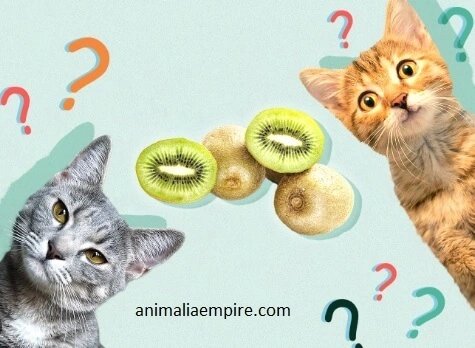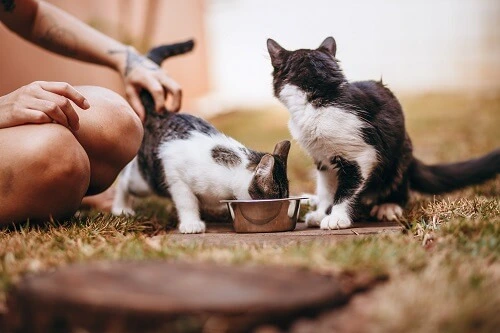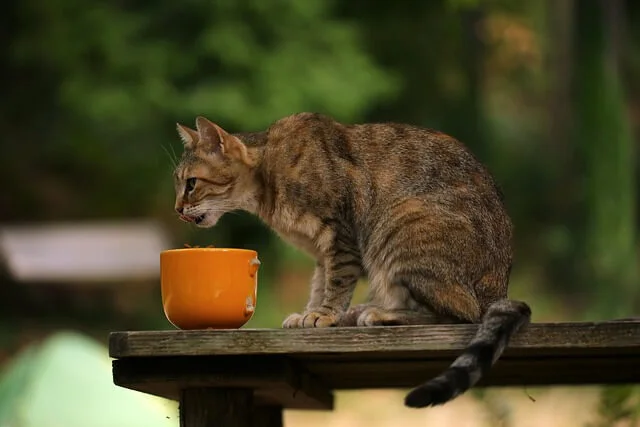As cat owners know, our feline friends have discerning palates. Their curious nature leads them to beg for scraps when we enjoy fruit. You may have wondered – can cats eat kiwi? Do kiwi offer nutritional benefits or pose dangers to cats?
Can cats eat kiwi safely? Learn whether kiwi is good for cats, potential benefits and risks, serving tips like removing seeds first, and precautions to take.
Exploring Whether Kiwi Fruit is Safe or Recommended for Cats
In this article, we’ll dive into whether kiwi fruit is safe for cats to consume, potential benefits and risks, serving suggestions and precautions. My goal is to help you make an informed decision about sharing an occasional kiwi treat with your cat or avoiding it altogether. Let’s review the findings so you can provide the healthiest diet for your pet.

So what does the evidence indicate – is kiwi fruit something cats can safely eat in moderation or a fruit to avoid? Overall, research suggests kiwi is non-toxic for feline consumption in small amounts when accounting for a few precautions:
- Kiwi flesh is not inherently toxic or poisonous to cats according to veterinary guidance. The soft edible inner pulp is fine for cats to ingest.
- Kiwis contain antioxidants, vitamin C and fiber that offer potential wellness benefits when eaten sparingly.
- However, kiwi seeds may cause stomach upset or blockage risks. Seeds should be removed before cats consume kiwi flesh.
- Kiwi skins contain slightly higher oxalate levels. It’s best to limit consumption of the fuzzy outer peel.
- As with any new treat, introduce kiwi slowly and watch for allergic reactions or tummy issues.
So a whole kiwi with skin intact does pose some risks. But cats can eat cleaned kiwi fruit flesh in moderation as an infrequent snack under supervision, allowing them to enjoy this vitamin-rich delicacy safely.
Potential Benefits of Cats Eating Kiwi Occasionally
When safely prepared and served in small amounts, kiwi fruit offers cats nutritional value:
- High vitamin C content boosts immunity by stimulating disease-fighting white blood cells and antibodies.
- Antioxidants in kiwis aid cellular health and may protect against certain cancers.
- Kiwi provides fiber for digestive regularity and prebiotic nourishment for gut bacteria.
- Low glycemic index prevents blood sugar spikes.
- May freshen a cat’s breath thanks to vitamin C and low carb content.
- Provides hydration from high water content to promote kidney and urinary health.
- Aids nutrient absorption of vitamins E and K present in a cat’s regular diet.
- Natural enzymes like actinidin support digestion.

So in moderation, kiwi’s vitamins, minerals and fiber bring benefits ranging from immunity to digestion to hydration. Talk to your vet, but they may give the green light to an occasional kiwi treat.
Potential Risks of Cats Eating Kiwi
While kiwi flesh is safe in small amounts, certain risks need precautions:
- Kiwi seeds may cause intestinal blockage or irritation if swallowed. Remove all seeds first.
- Kiwi skin contains oxalates which can be toxic in high amounts. Only feed cats the fruit pulp.
- Diarrhea or an upset stomach may result if cats eat too much kiwi at once. Keep servings under 1-2 teaspoons.
- Oral irritation, itching or swelling could signal allergy. Discontinue feeding kiwi.
- High sugar content means kiwi fruit should be limited to prevent obesity, diabetes and other issues.
- Increased urination from fluid content could lead to accidents in unsuitable areas.
So while not directly toxic, kiwis do come with some potential side effects cats. Portion control and seed removal are key to safely allowing cats to reap benefits.
Tips for Safely Feeding Your Cat Kiwi
Follow these tips for safely incorporating kiwi into your cat’s diet:
- Start with just a 1⁄2 teaspoon serving to assess tolerance.
- Feed infrequently, no more than 1-2 times per week.
- Mix just a few tiny kiwi pieces into wet cat food for easier digestion rather than offering straight fruit.
- Always scoop out seeds first to reduce intestinal obstruction hazard.
- Peel off fuzzy outer skin which has higher oxalates cats shouldn’t overconsume.
- Dice kiwi into bite-size pieces to prevent choking.
- Monitor litter box for issues indicating digestive upset.
- Keep hydrated to dilute natural sugars and fluids from kiwi’s high water content.
- Brush the cat’s teeth after eating fruit to prevent sugar from decaying.
- With precautions, your cat can safely enjoy a few morsels of kiwi as a flavorful snack.
The Verdict: Can Cats Eat Kiwi?
So can cats savor kiwi occasionally? In moderation, yes, kiwi can be a safe and even healthy feline treat. The sweet, vitamin-packed tropical fruit offers nutritional benefits to cats when portion sizes are restricted and seeds are removed.
Talk to your veterinarian first, then introduce tiny amounts of kiwi flesh mixed into meals to allow your cat a yummy new flavor without tummy troubles. With some smart precautions, kiwi can be a safe and nutritious occasional snack they’ll relish. Just be sure to monitor your cat for any adverse effects.


Leave a Reply